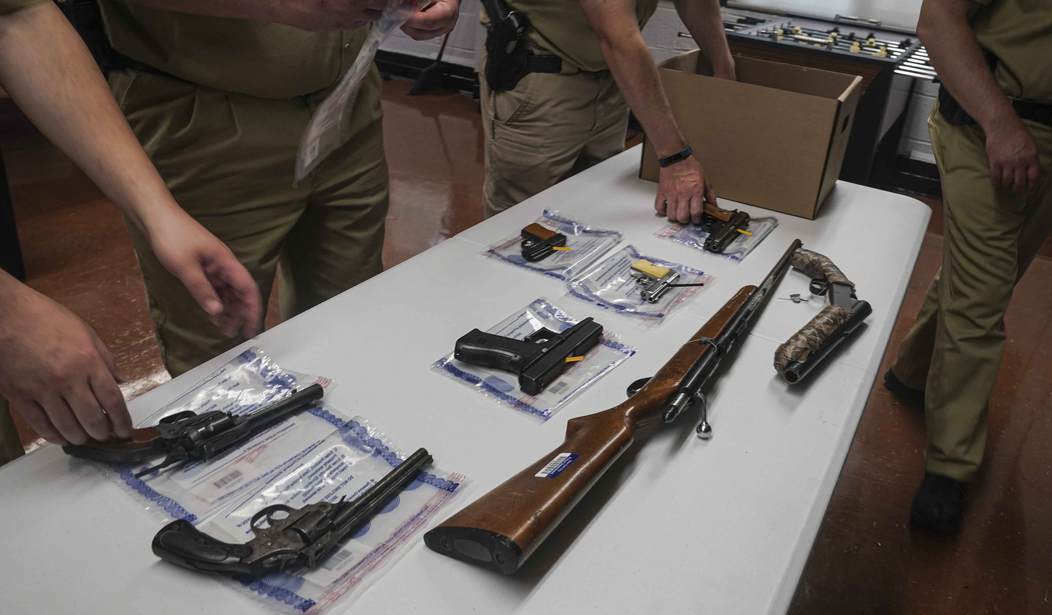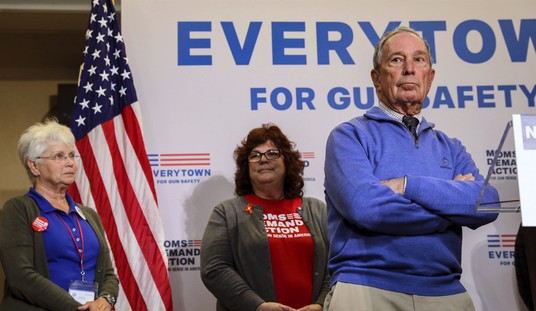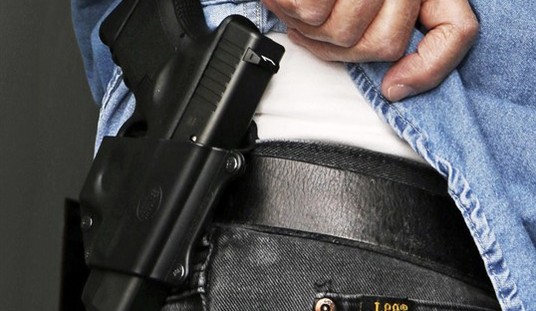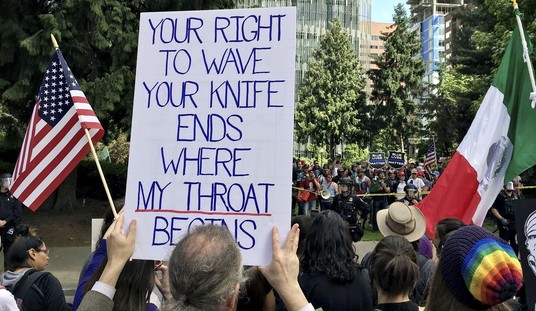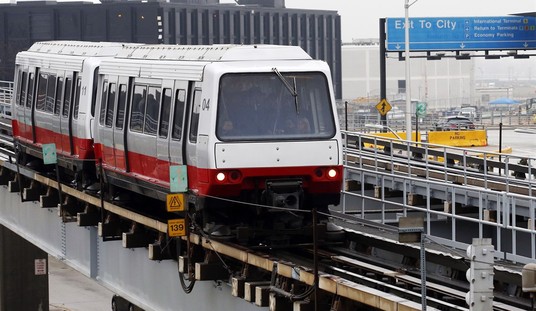The original headline to this story was “Colorado cities run out of good ideas to fight crime, try ‘buybacks’ instead” but A) it was a little wordy and B) the cities of Denver and Aurora haven’t actually run out of good ideas at all. There are plenty of effective ways to reduce violent crime, but since they involve actually getting tough on violent offenders, they’re a non-starter in the Democrat-controlled Denver area. Instead, with shootings on the increase, officials in these cities are turning to compensated confiscation events so they can tell voters they’re “doing something”.
“Our goal is to get guns off the street. What we’re seeing is an extraordinary uptick in crime in both Denver and Aurora,” Denver District 5 Councilwoman Amanda Sawyer told CBS4’s Mekialaya White via Zoom.
Sawyer says now is the time to take action, after a massive increase in violent and property crime in recent weeks. That includes two shootings in Aurora injuring several teenagers just last week.
“I think for a long time there’s been a hesitancy for government to get involved in a program like this, especially in the metro area. There’s a crisis in our communities, especially with young people,” echoed Aurora Councilman-at-Large Curtis Gardner. “So, we are partnering with Colorado Springs-based nonprofit RawTools that will take guns volunteered at our buyback that will turn them into garden tools and jewelry. It creates a really neat synergy for the community.”
“We think it’ll be a really valuable partnership between both cities,” added Sawyer.
Well, let me disabuse you of that notion, Councilwoman. There’s absolutely no evidence that gun “buybacks” do anything to reduce crime, suicides, or accidents involving firearms. None. Zero. And if a program is utterly worthless at improving public safety, then how can Denver’s partnership with Aurora and RawTools be of any value at all?
There’s no doubt that violent crime is a real problem in Denver, Aurora, and the state of Colorado more generally. But there’s also no doubt that crime has increased even as Democrats in control of state and local governments have put more and more gun control laws on the books.
In 2013 the state imposed universal background check requirements and banned ammunition magazines with a capacity greater than 15 rounds. Since that time, the state has added a red flag law, repealed the firearms preemption law that blocked localities from setting their own local gun laws, imposed storage mandates, and more. All of these measures were supposed to reduce violent crime. Politicians proclaimed the state would be a safer place with these laws in effect. The reality is that violent crime in Colorado more commonplace than at any point in the past 25 years.
This isn’t simply the result of the pandemic or societal unrest (though the state has seen plenty of both in the past year). No, violent crime has been steadily rising since 2014, which just happens to be the first full year that universal background checks and the state’s magazine ban were in effect. Even as Democrats rammed additional gun control laws through the legislature, crime has continued to move in the wrong direction. I’m going to go out on a limb here and predict that next year’s compensated confiscation events aren’t going to do anything to change these trends. In fact, some research suggests that gun “buybacks” can actually increase crime, which is the last thing Colorado needs.
While policymakers are fiercely debating whether to allow public funds to be used for GBPs [Gun Buyback Programs], next to nothing is known about the effectiveness of prior GBPs in U.S. cities. This paper is the first to present evidence on this question. We highlight three key findings.
First, using data from the 1991-2015 National Incident Based Reporting System (NIBRS), we find no evidence that GBPs are effective at deterring gun crime either in the short- or longer-run. The precision of our estimates is such that, with 95 percent confidence, we can rule out decreases in gun crime of 1.3 percent in the 12 months following a GBP and 2.3 percent a year or more after a GBP.
Second, in the two months following a GBP, we detect a small increase in gun crimes with no corresponding change in non-gun crimes. This finding is consistent with a possible criminal response to perceptions about the likelihood of self-defense among law-abiding gun owners.
Finally, turning to data from the National Vital Statistics System (NVSS), we find no evidence that GBPs affected firearm-related suicides or homicides.
But hey, even if crime continues to go up, at least some folks are going to be able to buy some snazzy and overpriced garden tools that were once part of a gun. Seriously overpriced, by the way. Eighty bucks for a garden spade? Ninety dollars for a small mattox? That seems like a lot of money to waste on virtue signaling.
I’m sure that the progressives who buy one of these tools will feel really good about themselves for doing so, but it won’t do a damn thing to make anyone safer. Sadly, Denver and Aurora’s gun “buyback” program promises to be more of a self-esteem exercise for wealthy liberals than anything else.

